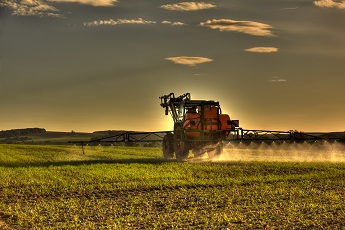New tools to reduce nitrogen leaching to water

Related topics
Agriculture & Forestry Environment & climate action Innovation Denmark Netherlands Spain United Kingdom Food security, sustainable agriculture and forestry, maritime and martime inland water research and bio-economydate: 17/02/2014
Project: Toolbox of cost-effective strategies for...
acronym: N-TOOLBOX
See also: CORDIS
Contact: http://research.ncl.ac.uk/nefg/ntoo...
The project, N-Toolbox, compiled a number of cost-effective strategies to protect water from such nitrate pollution. As the name suggests, it offers a toolbox of ideas for farmers, with useful recommendations for a variety of crops, farming systems and environments. Gathered in an easily accessible format, it allows farmers to choose the subset of strategies most suited to their particular situation.
N-Toolbox covers every farming situation where nitrogen plays a role, including manure storage and handling; livestock management; pasture management; strategies for irrigated land; drainage and wastewater management.
The N-Toolbox project team analysed scientific literature for the best advice possible on preventing nitrogen loss in agriculture. “It is about identifying the best strategies for each farmer,” says project coordinator Julia Cooper, from the Nafferton Ecological Farming Group (NEFG), at Newcastle University. “We’re bringing together research on nitrates from the past 20 years and making it useful for farmers,” adds Cooper.
Along with the project partners - the Louis Bolk Institute in the Netherlands, the Polytechnical University of Madrid, and the University of Aarhus in Denmark – Cooper worked on the ground with farmers to test out new strategies. “There is no magic bullet that will solve the problem of nitrogen losses to water from agriculture,” Cooper says. “In reality a network of partial solutions is required, that when applied together, can significantly reduce these losses,” she explains.
The main output was a comprehensive catalogue of farm level ideas to reduce nitrogen losses. This dynamic catalogue is accessible online and lists 39 strategies within eight different categories, with the win-win methods that both reduce nitrogen losses to water and save money ranked highest.
The other major result was the development of a software tool, NDICEA, which can be used at the farm level to illustrate options for improved nitrogen management. The software package, designed to help decision-making, takes account of geography and includes environmental files with weather and soil data from England, Spain and Denmark.
Cooper says farmers using N-Toolbox will be in a stronger position to adapt their nitrogen strategies by increasing their understanding of the causes and control of nitrate loss into the environment. “It should be a no-brainer to reduce nitrogen loss as it usually means a decrease in fertiliser input costs,” she says.
Cooper also stressed the practical value of interaction between researchers and the farming community, a new experience for many of the participants. “It gave us an improved appreciation of the practicalities of nitrogen management at the farm level and helped bridge the gap with farmers,” she says. “It also had an impact on us as researchers since it meant we actually had to go out in the field and get in touch with the real world,” she concludes.
